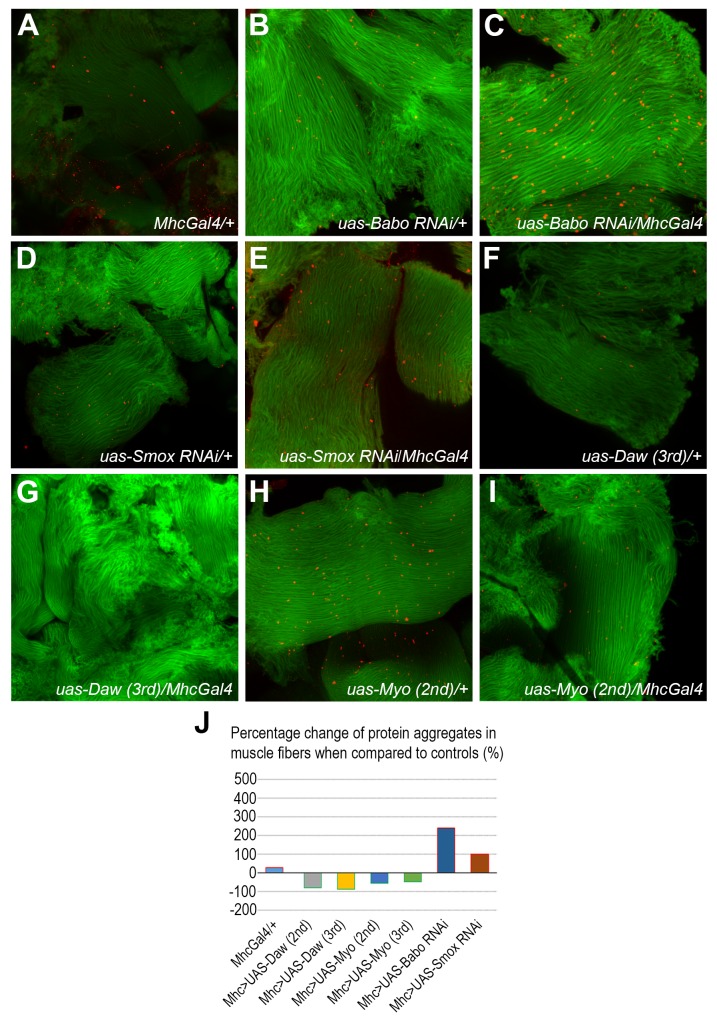Fig. 5.
Fruit fly Activin signaling regulates normal protein homeostasis in adult fruit fly muscle tissues. (A-I) Thoracic muscle tissues of 20-day-old female fruit flies of different genotypes were stained by an anti-mono/polyubiquitin antibody (FK2) for ubiquitinated protein aggregates (red) and counter stained by CytoPainter Phalloidin-iFluor 488 for F-actin of muscle fibers (green). Intermediate levels of ubiquitinated protein aggregates (red dots) were observed from thoracic muscle of MhcGal4/+ control fruit flies (A), UAS-Babo RNAi/+ control fruit flies (B), UAS-Smox RNAi/+ control fruit flies (D), UAS-Daw (3rd)/+ control fruit flies (F), and UAS-Myo (2nd)/+ control fruit flies (H). Expression of a Babo RNAi transgene (UAS-Babo RNAi) or a Smox RNAi transgene (UAS-Smox RNAi) in adult thoracic muscle tissues with a MhcGal4 driver resulted in elevated levels of protein aggregates as shown in C and E, respectively, when compared to those of the control tissues (P<0.001). Expression of a wild-type Daw transgene (UAS-Daw on the third chromosome) or a wild-type Myo transgene (UAS-Myo on the second chromosome) in adult fly muscle effectively suppressed the appearance of ubiquitinated protein aggregates as shown in G and I, respectively, when each of the tissue samples from G and I was compared to their respective controls from F and H (P<0.001). (J) Quantified relative levels of the ubiquitinated protein aggregates from the thoracic muscle tissues of different genotypes of fruit flies from A to I.

